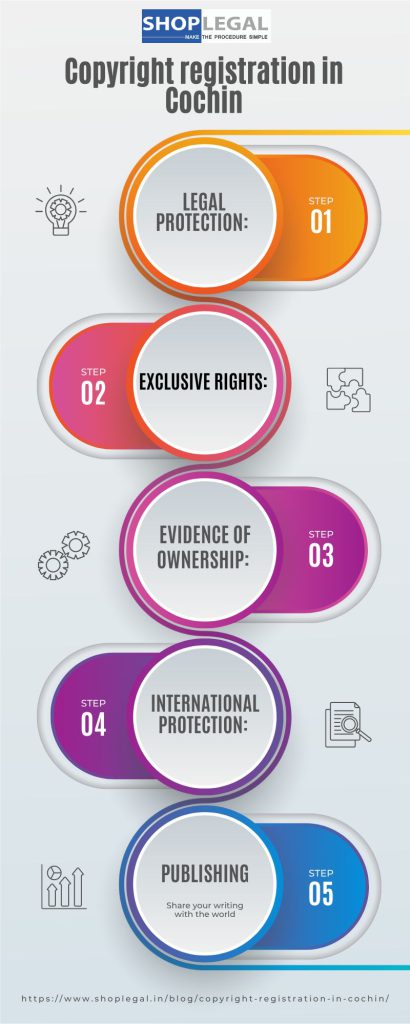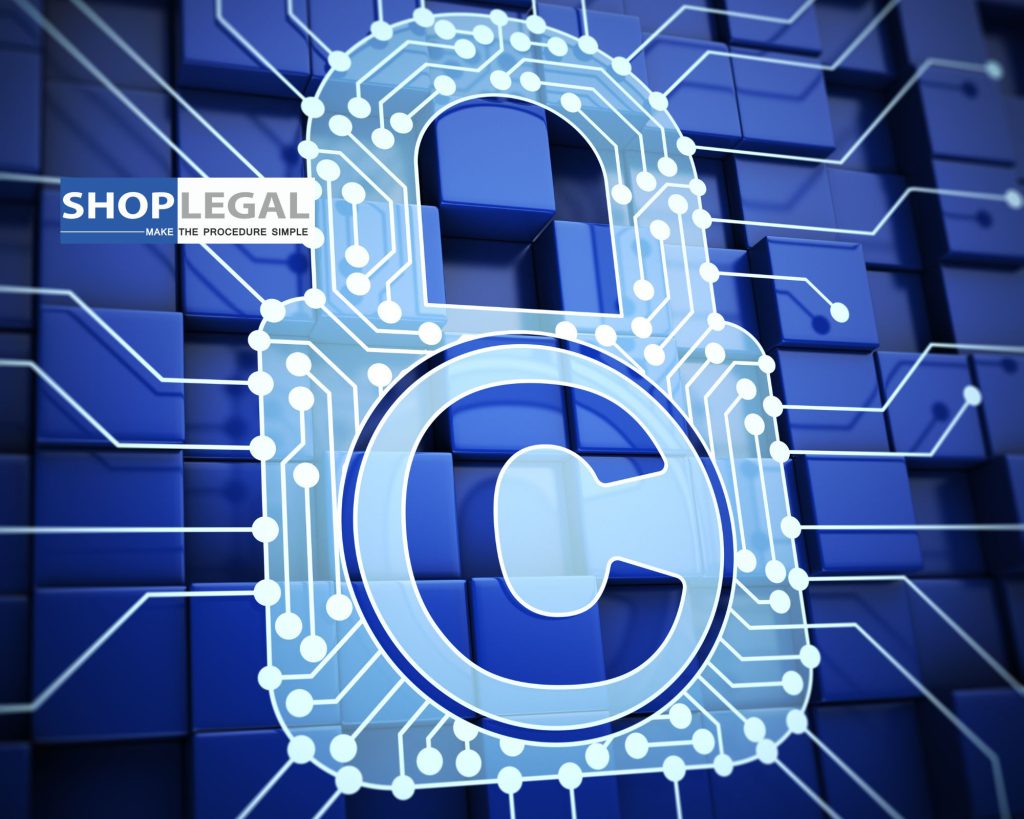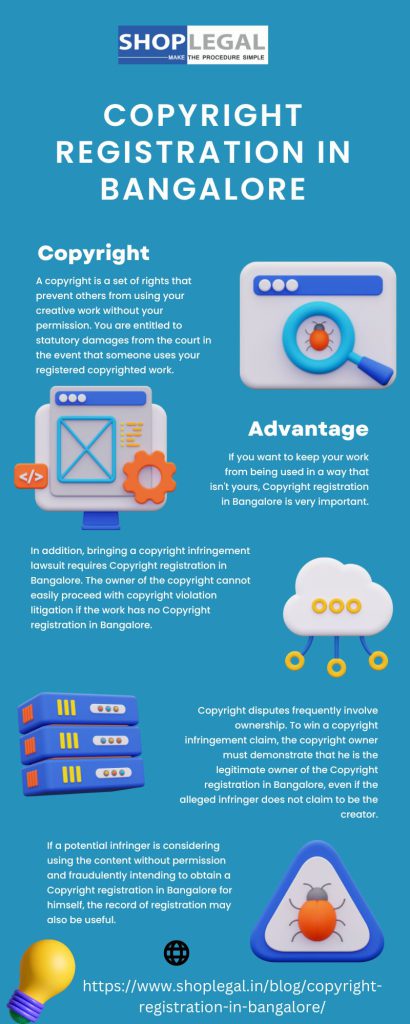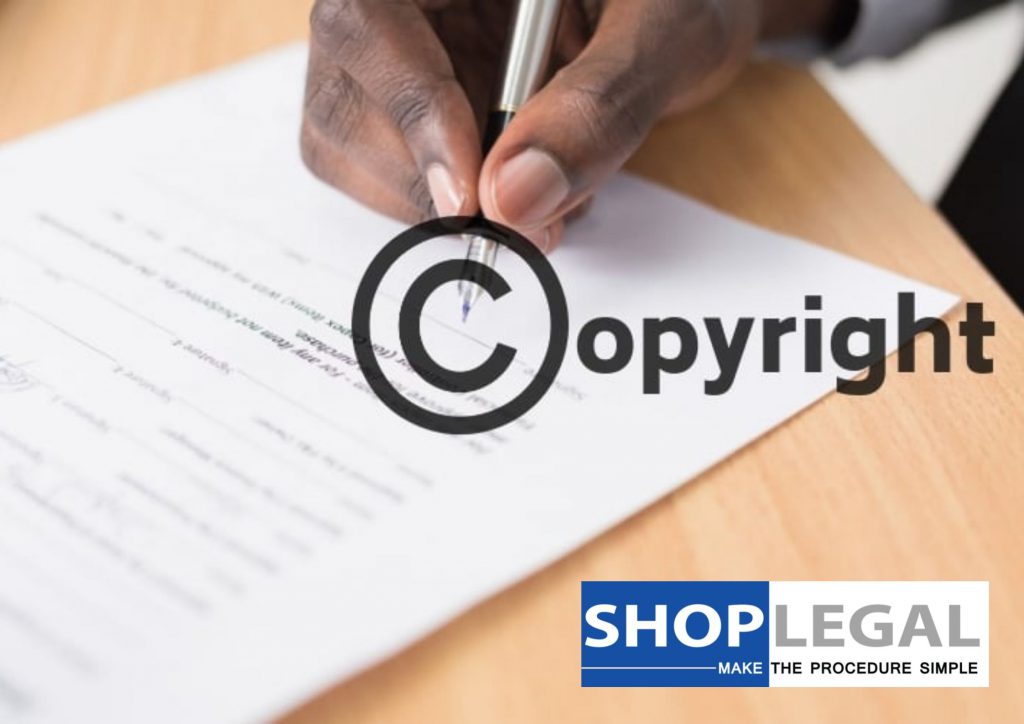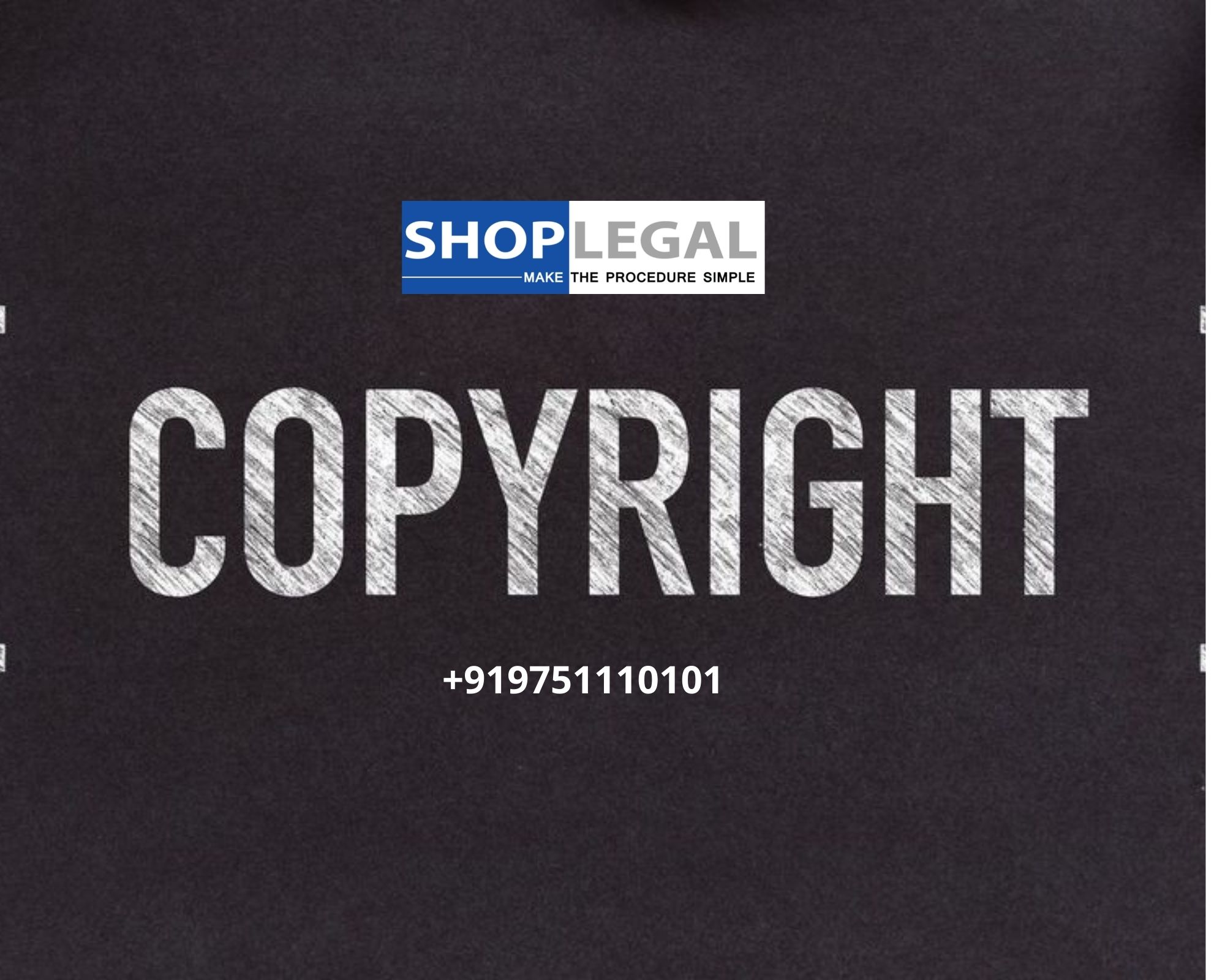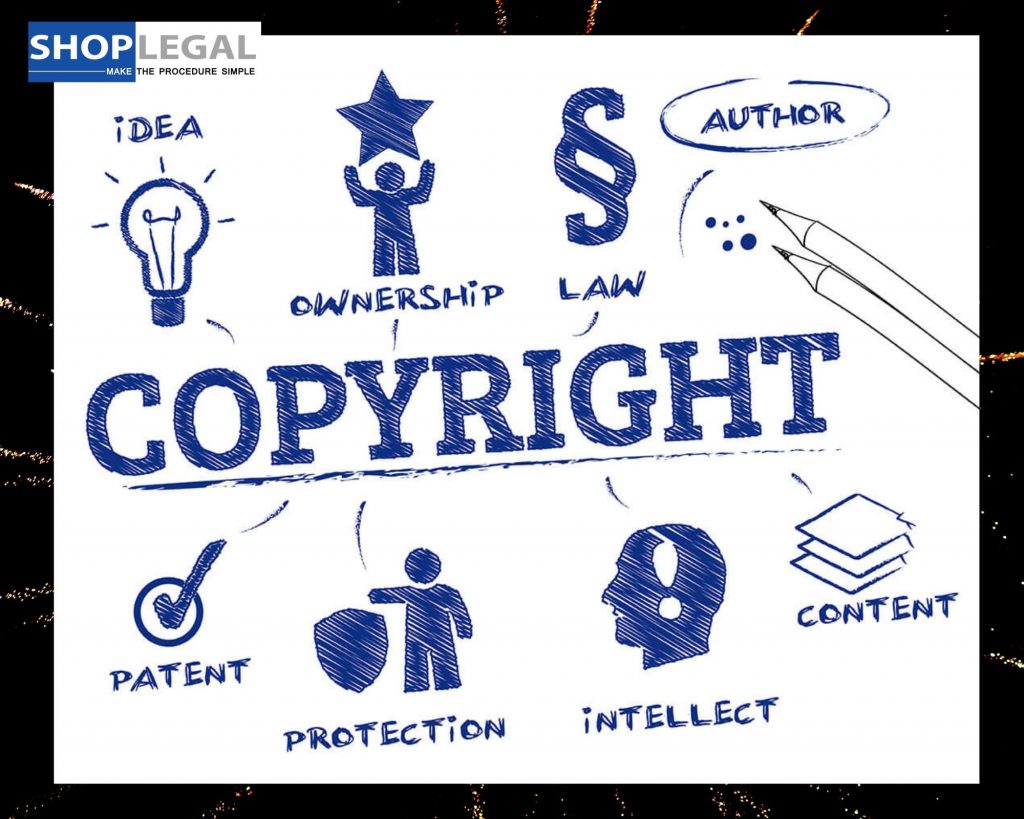Copyright registration in Cochin
TALK TO EXPERTS
Copyright is a legal term used to describe the exclusive rights granted to an author, creator or owner of an original work to control the use and distribution of their work. In India, copyright is governed by the Copyright Act of 1957, which has been amended several times to keep pace with the changing technologies and global developments.
Copyright in India protects various types of original works, including literary works, artistic works, musical works, dramatic works, sound recordings, cinematographic films, and computer programs. The Copyright Act grants exclusive rights to the author or creator of a work, including the right to reproduce the work, distribute copies of the work, perform or communicate the work to the public, and create derivative works based on the original work.
Copyright protection
Copyright protection is automatic in India, meaning that no formal registration is required for obtaining copyright protection. However, it is recommended to register the work with the Copyright Office to establish ownership and to protect against potential infringement.
The term of copyright registration in Cochin varies depending on the type of work. In the case of literary, dramatic, musical, or artistic works, the term of protection is the lifetime of the author plus 60 years after their death. For cinematographic films, the term of protection is 60 years from the date of publication, while in the case of sound recordings, the term is 60 years from the date of recording.
In case of infringement of copyright, the Copyright Act provides for both civil and criminal remedies. Civil remedies include injunctions, damages, accounts of profits, and delivery of infringing copies. Criminal remedies include imprisonment and fines. In addition, the Act also provides for the establishment of the Copyright Board, which is responsible for settling disputes related to copyright registration in Cochin.
How copyright claim works?
Copyright claim is a legal process in which the owner of an original work asserts their exclusive rights to control the use and distribution of their work.
Copyright claims are typically made by authors, creators, or owners of original works, such as literary works, artistic works, musical works, dramatic works, sound recordings, cinematographic films, and computer programs. In this article, we will explain how copyright claim works.
To make a copyright claim, the owner must first establish that they are the original author, creator, or owner of the work. This can be done by providing evidence of ownership, such as a certificate of registration from the Copyright Office or any other relevant document that proves ownership. Thus copyright registration in Cochin must be done.
Once the ownership is established, the owner can assert their exclusive rights to control the use and distribution of the work. This includes the right to reproduce the work, distribute copies of the work, perform or communicate the work to the public, and create derivative works based on the original work.
In case of infringement, the owner can make a copyright claim and seek legal remedies for the unauthorized use of their work. The process of making a copyright claim typically involves the following steps:
Identify the infringing use:
The owner must first identify the unauthorized use of their work. This could be copying, distributing, or performing the work without permission, or creating derivative works based on the original work. When copyright registration in Cochin is done action against infringement can be proceeded.
Contact the infringer:
The owner may choose to contact the infringer and request that they cease the unauthorized use of their work.
This can be done through a cease and desist letter, which is a legal document that warns the infringer of legal consequences if they continue to use the work without permission.
File a takedown notice:
If the infringer does not comply with the request to cease the unauthorized use, the owner can file a takedown notice with the relevant platform or service provider.
For example, if the infringing use is on a website or social media platform, the owner can file a DMCA (Digital Millennium Copyright Act) takedown notice, which requires the platform to remove the infringing content.

File a lawsuit:
If the infringer does not comply with the takedown notice, the owner can file a lawsuit to seek legal remedies for the copyright infringement. This is possible when you have copyright registration in Cochin.
This could include injunctions, damages, accounts of profits, and delivery of infringing copies.
In order to establish a successful copyright claim, the owner must prove that their work is original and that the infringing use is unauthorized.
The burden of proof lies with the owner, who must provide evidence to support their claim. This could include registration certificates, documentation of creation and ownership, or witness testimony.
It is important to note that copyright law is complex and can vary depending on the jurisdiction. In addition, there are exceptions and limitations to copyright, such as fair use, which allows for the use of material that have copyright registration in Cochin for certain purposes, such as criticism, comment, news reporting, teaching, scholarship, or research.
Benefits of copyright registration
Copyright registration in India provides several benefits to the owner of the original work. Here are some of the key benefits of copyright registration in India:
Legal protection:
Copyright registration in Cochin provides legal protection to the owner of the original work. It establishes a legal presumption of ownership and validity, which makes it easier for the owner to enforce their rights in case of infringement.
Exclusive rights:
Exclusive rights to control the use and distribution of their work are obtained when you get Copyright registration in Cochin. This includes the right to reproduce the work, distribute copies of the work, perform or communicate the work to the public, and create derivative works based on the original work.
Evidence of ownership:
Copyright registration in Cochin provides a tangible record of ownership. This can be used as evidence in court to establish ownership and to seek legal remedies in case of infringement.
Economic benefits:
Copyright registration can provide economic benefits to the owner of the original work. It can help in licensing and monetizing the work, which can generate revenue for the owner.
International protection:
Copyright registration in India is recognized in several countries through international treaties. This provides international protection to the owner of the original work and makes it easier to enforce their rights in other countries.
Statutory damages:
Copyright registration in Cochin provides the owner with the right to claim statutory damages in case of infringement. This means that the owner can claim a predetermined amount of damages without having to prove actual loss or damage.
Injunctions:
Copyright registration provides the owner with the right to seek injunctions to prevent further infringement. This can be an effective remedy to stop the unauthorized use of the work.
Conclusion
To sum up, copyright registration in Cochin is a legal concept that protects the rights of authors, creators, and owners of original works. It grants exclusive rights to the owner and provides a legal framework for enforcing those rights in case of infringement. While copyright registration in Cochin is not mandatory, it is recommended to establish ownership and protect against potential infringement. The Copyright Act of 1957 and its subsequent amendments provide for both civil and criminal remedies for copyright infringement.
